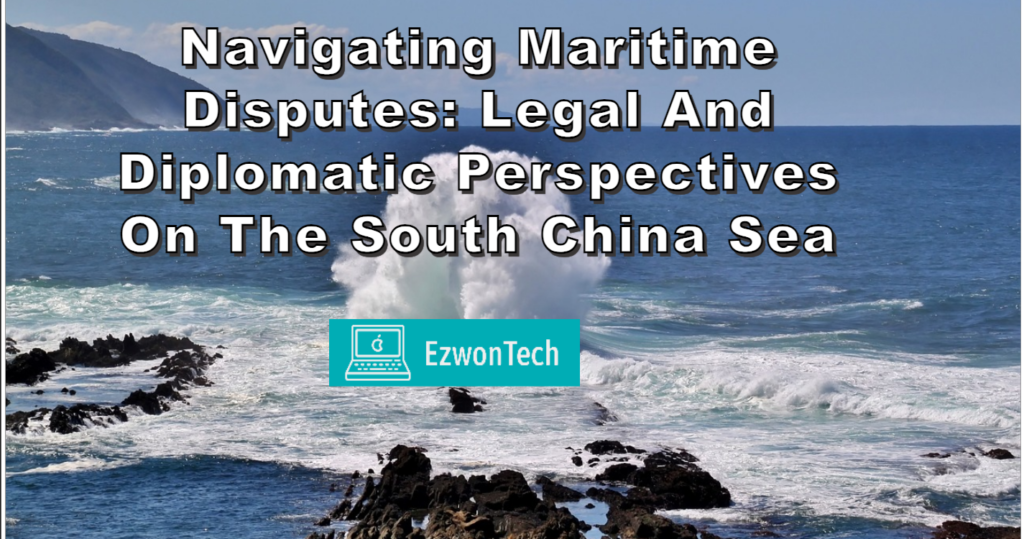The South China Sea is known to be one of the most strategic maritime regions in the world. The South China Sea draws this importance from its physical features. It is bordered by many Southeast Asian nations, therefore making the sea a centre of geopolitical tension in the South Asian region. The geopolitical tensions arise in the region due to overlapping territorial claims due to its rich natural resources and strategic trade routes. There have been continuous efforts by diplomats across the world to solve the ongoing conflict. South China Sea news often highlights these disputes and the responses they generate across the world.

Legal Perspective
The primary body that deals with the legal framework governing maritime disputes across the world is the United Nations Convention on the Law of the Sea or UNCLOS. UNCLOS was established in the year 1982 providing a legal structure that helps in defining the territorial seas, maritime conduct as well as Exclusive Economic Zones commonly known as EEZs.
The ‘nine-dash line’ gives China’s claim in the South China Sea. However, this line overlaps with EEZs of surrounding nations like Vietnam, Philippines, Malaysia, Brunei and Indonesia.
In 2016 the Permanent Court of Arbitrate (PCA) in the Hague made a decision in favour of the Philippines in a case challenging China’s claims. PCA found out that China’s claims had no legal basis under UNCLOS.
Despite the decision, China ignores the decision of the tribunal. China continues its claim over the South China Sea. Moreover, it has also constructed militarizing key outposts. Here comes a significant challenge: while there could be international laws governing the mechanism to solve the dispute it could not enforce these laws. It could only ask the countries involved in the dispute to cooperate and come to a peaceful agreement.
Diplomatic Efforts
Diplomacy has proved to be a crucial way to solve disputes over the South China Sea. Many forums such as ASEAN or the Association of Southeast Asian Nations have worked towards fostering a dialogue and establishing negotiations amongst the concerned Nations.
It has been trying to negotiate with China to establish a Code of Conduct for the disputed sea area. The aim of such forums is to manage the geopolitical tensions and prevent tensions amongst concerned Nations. However, these negotiations take a considerable amount of time, yet they have proved to be an important instrument in preventing tensions.
Many big Nations such as the United Nations have been quite open about the international order. The United Nations Navy regularly sails through the disputed territory and asserts international laws and rights under the UNCLOS.
International Community
The international community has a serious role to play in navigating the sea disputes. Countries such as Australia, Japan and the European Union have shown their support for the UNCLOS and the peaceful resolution of the dispute. Involvement of the international community in such disputes becomes evident of the global stakes involved because of the significance of the South China Sea to regional security, peace in southeast Asia and international trade.
However, the international community’s wishes cannot enforce international law on any country. Although military presence, economic sanctions and diplomatic pressures can influence the concerned countries to some extent, they play no role in deciding the behavior of countries such as China. Thus, reaching a permanent solution becomes very difficult and so it requires a combined effort of legal rulings, diplomatic negotiations and strategic patience.
Future of the South China Sea Dispute
The future of the South China Sea dispute lies in a balanced combination of diplomacy and assertiveness. Although international laws help provide a basis for negotiations their effectiveness and enforcement become difficult. In such situations, diplomacy plays a pivotal role in coming to a permanent solution. South China Sea news helps the world understand the condition of the disputed region and come to an understanding regarding the same.
Finally, resolving disputes in the South China Sea requires varied approaches that combine the efforts of international laws and diplomats. These efforts together can help in shaping the future of such a crucial region. The end goal should however remain a stable, cooperative and peaceful South China Sea where international laws are sustained and the interest of every country is taken into account.